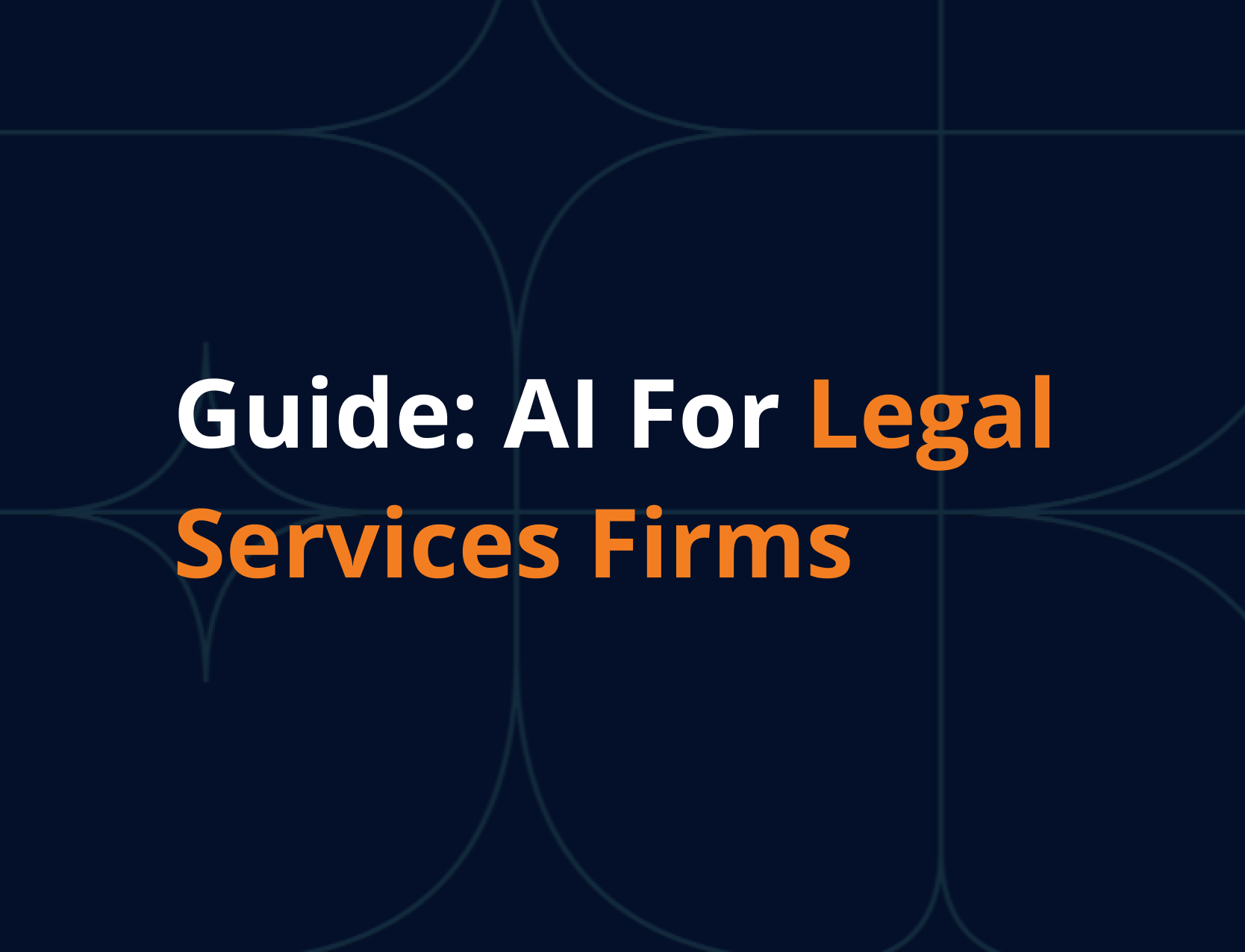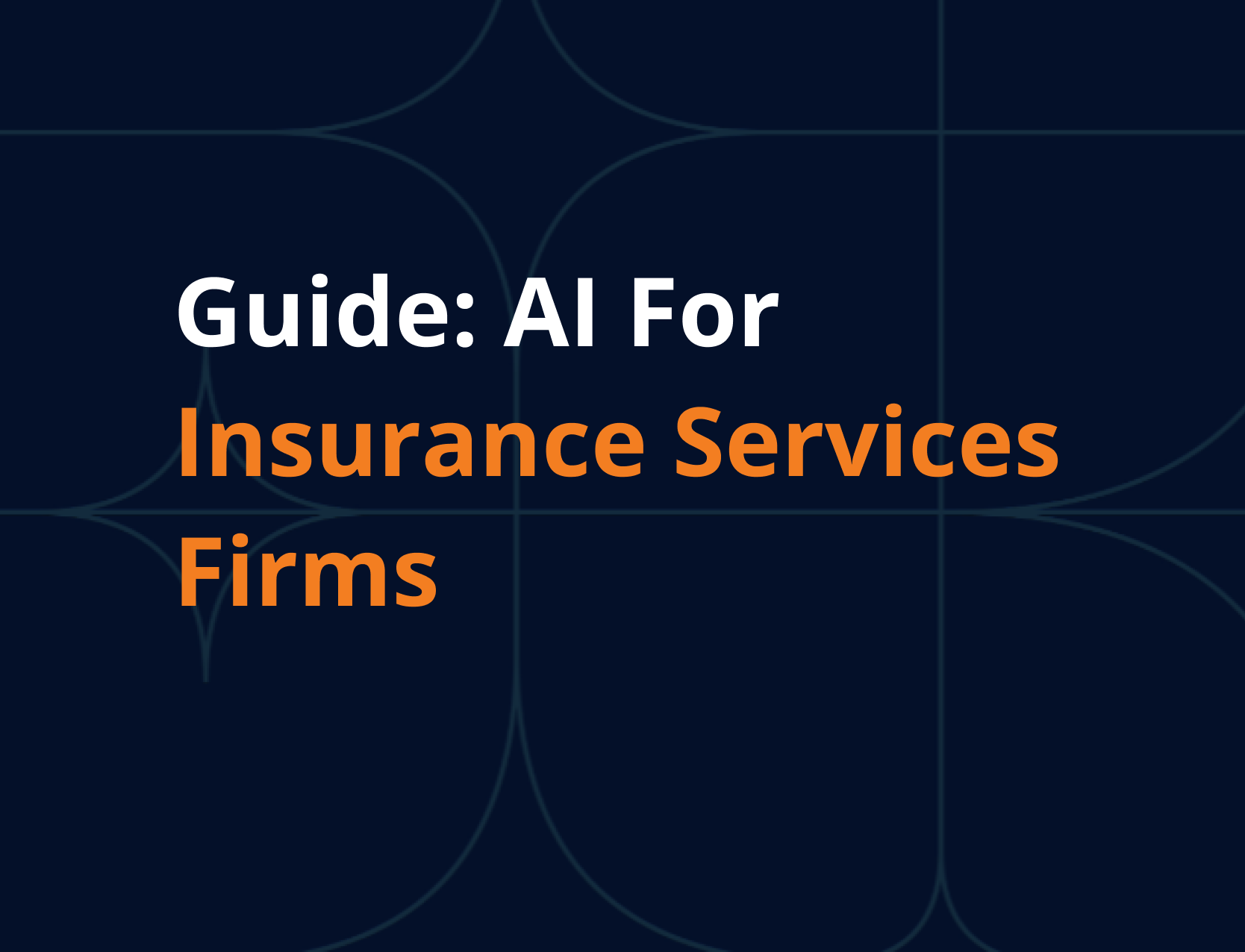You’re not facing this challenge alone. The legal profession stands at a transformative crossroads, where artificial intelligence has evolved from an intimidating unknown to a compassionate ally. With the global legal AI market valued at USD 1.9 billion in 2024, growing at 13.1% CAGR through 2034[source], this isn’t just about technology adoption—it’s about reclaiming your profession’s higher purpose while building sustainable practices for the future.
For law leaders managing through this change, the way ahead calls for something more than technical acumen. It takes vision into how AI for legal services can complement your team’s distinctive human strengths while maintaining the trusted relationships that are the backbone of superb legal practice.
The Human Side of AI Adoption
Behind each statistic, there is a human narrative. These statistics represent more than market trends—they illustrate thousands of meetings in conference rooms where partners grapple with issues of how to preserve quality while enhancing efficiency. They represent associates questioning whether technology will add value to or compromise their career aspirations. They represent clients demanding quicker, less expensive legal services without losing the personal touch they desire.
Behind these figures are small firms concerned about going up against better-funded rivals, and individual practitioners wondering whether they can continue to stay competitive. On the other hand, big firms struggle to preserve their team-based culture while rolling out advanced technology platforms.
AI for Legal Services That ‘Get’ Human Work
- Generative AI: Generative AI doesn’t supplant legal thinking—it augmentes it. By training on enormous collections of legal documents, case law, and regulatory codes, it becomes an advanced research assistant that appreciates the subtleties of legal practice:
- Intelligent Document Generation: AI generates contracts, briefs, and memoranda in your firm’s particular style and precedent, freeing up time for strategic analysis and client counseling.
- Agentic AI: Agentic AI is a new kind of assistance—systems that handle intricate workflows with little oversight while human judgment remains at the forefront of every choice:
- Workflow Orchestration: AI orchestrates discovery tasks, handles scheduling, and adapts timelines when conditions shift, minimizing administrative workload for your legal team.
- Strategic Research Support: AI examines patterns from comparable cases, creates alternative approaches, and offers insights into judicial trends, strengthening your strategic decision-making.
- Client Relationship Enhancement: AI handles automatic client communications and document requests and alerts for personal attorney review those that need it.
Where AI for Legal Services Makes the Most Meaningful Difference
AI-driven contract review doesn’t reduce legal experience—it enhances it by taking care of mundane analysis while reserving time for strategic advice:
- In-Depth Due Diligence: AI sorts through thousands of documents in transactions, pointing out risks and opportunities while you concentrate on counseling clients on business repercussions
- Intelligent Risk Assessment: AI points out unusual clauses and possible issues, but leans on your professional judgment to assess their relevance to unique client circumstances
- Quality Enhancement: AI delivers uniform analysis across document sets, minimizing the possibility of human oversight over extended review periods
- Human Impact: Lawyers indicate 40-60% decrease in time spent on routine review, freeing them to devote more time to strategic counseling and business development functions that build stronger client relationships.
Legal Research That Enhances Analytical Capability
Advanced legal research AI never replaces legal analysis—it lays the groundwork for more advanced thinking:
- In-Depth Case Analysis: AI reads millions of legal files to find applicable precedents, providing you with a wider basis for arguments in law.
- Regulatory Intelligence: AI tracks changes in regulation across regions to enable you to advise clients proactively about compliance consequences.
- Predictive Insights: AI draws on patterns from the past to guide litigation planning but reserves tactical choices to your professional experience.
- Template Optimization: AI creates preliminary versions based on firm precedents, allowing attorneys to concentrate on tailoring to individual client requirements.
- Compliance Integration: AI includes up-to-date regulatory requirements, minimizing administrative weight while ensuring accuracy.
- Quality Assurance: AI offers repeatable review processes, facilitating professional standards and diminishing rote work.
Industry-Specific Applications of AI for Legal Services That Know Your Practice
- Corporate Law: Enabling Strategic Counsel
- M&A Excellence: AI processes document review in due diligence so attorneys can devote their time to deal structure and negotiation strategy
- Compliance Intelligence: AI tracks regulatory updates so lawyers can focus on counseling clients on business impact
- Governance Support: AI processes standard corporate documentation so lawyers have time for strategic governance advice
- Litigation: Boosting Advocacy Skills
- Discovery Efficiency: AI processes document review tasks so lawyers can devote their attention to case strategy and client advocacy
- Strategic Planning: AI evaluates case trends to guide strategy without sacrificing attorney judgment on approach and presentation
- Brief Automation: AI aids in research and early drafting, helping attorneys develop effective legal arguments
- Real Estate: Simplifying Transactions
- Title Insight: AI examines title reports thoroughly, allowing attorneys to address complex title matters
- Contract Streamlining: AI performs routine contract analysis, free for lawyers to focus on negotiating terms that advance client interests
- Regulatory Navigation: AI monitors regulatory evolution, helping lawyers to deliver up-to-date compliance advice
Measuring Success in Human Terms
Effective AI for legal services deployment generates value that is not limited to financial performance. Think of this example: If AI frees up 20 hours a week for a law firm worth $150/hour, that is $156,000 in each year of capacity improvement. When AI platform fees stand at $30,000 a year, the 420% return on investment manifests as additional time for client care, professional growth, and work-life balance.
Calculate Your Practice’s Potential: To gain the precise financial return that AI might provide to your company’s billable hours and productivity, utilize our extensive Billable Hours Optimization AI Automation ROI Calculator. This tailored analysis will enable you to determine the potential return in terms of your practice’s particular characteristics and workflows.
Meaningful Performance Indicators:
- Quality Time with Clients: Measuring enhanced face-time for strategic guidance and relationship building
- Professional Development: Monitoring time for continuing education and skill building
- Client Satisfaction: Monitoring service delivery speed and responsiveness improvement
- Work-Life Integration: Monitoring attorney well-being and job satisfaction improvement
A Framework for Sustainable Implementation
- Phase 1: Understanding and Planning – Define where AI can augment instead of replace professional judgment, setting realistic expectations and success factors
- Phase 2: Careful Integration – Roll out AI tools incrementally with extensive training and support frameworks
- Phase 3: Ongoing Enhancement – Track technical performance as well as human satisfaction, refining systems according to feedback from the user
- Phase 4: Realization of Value – Track success through increased client service, enhanced professional satisfaction, and long-term practice growth
Addressing Human Concerns with Empathy
We understand the deep responsibility legal professionals feel toward their clients.
- Professional Oversight: All AI-generated work requires attorney review and accountability
- Client Transparency: Honest communication about AI for legal services use while emphasizing enhanced service capabilities
- Data Protection: Ensuring AI systems meet the highest standards for client confidentiality
- Accuracy Commitment: Having review processes in place that stop AI errors from translating into client service
Security That Preserves Trust
Client trust is the cornerstone of legal practice. Contemporary AI security practices preserve this trust via:
- Total Encryption: Client information kept safe during AI processing
- Flexible Deployment: On-premise processing available where data control must be absolute
- Access Management: Advanced controls to ensure only the correct people have access to client info
- Continuous Monitoring: Ongoing security scans that uphold the highest levels of protection
Facilitating Professional Development
Effective AI deployment alleviates human replacement fears by:
- Empowerment Focus: Framing AI as freedom from mundane tasks, allowing for emphasis on strategic work that involves human judgment.
- Skill Development: Offering opportunities to acquire new skills that augment AI technology.
- Career Enhancement: Showing how AI skills open up new avenues for professional growth.
- Ongoing Support: Providing constant training and support as the profession continues to develop.
Choosing the appropriate AI partner involves knowing more than technical details:
- Legal Acumen: Partners that see the subtleties of legal practice and professional responsibility obligation.
- Integration Finesse: Solutions that integrate with your current systems without upsetting existing workflows.
- Scalability with Direction: Platforms that expand with your firm while keeping top priority on legal service excellence.
- Depth of Customization: Technology that learns to support your firm’s distinctive method of client service.
- Implementation Philosophy: Vendors that value attorney satisfaction in addition to efficiency benefits
- Support Quality: Robust support that understands the value of preserving service quality during changes
- Track Record: Proven experience in serving similar legal practices as yours
- Long-term Vision: Partners who believe in keeping pace with the future of the legal industry instead of merely selling technology
The Evolving Landscape of AI for Legal Services
The established legal AI market features solutions such as CoCounsel, Harvey AI, Spellbook, LexisNexis+AI, and Westlaw Edge, which feature important capabilities related to contract analysis, research, and document automation.
DataSlush’s Human-Centered Philosophy
Contrary to generic legal AI software, DataSlush is a tailor-made agentic and generative AI service built for the specific needs of individual legal practices. Our philosophy acknowledges that each firm has its own culture, client relationships, and professional standards:
- Complete Personalization: Each AI solution is bespoke to complement your firm’s unique style of client service and legal practice.
- Excellence in Delivery: Our committed AI team acts as an extension of your practice, making implementations complement and not undermine your professional standards.
- Fast Value Demonstration: Rapid creation of pilot programs that illustrate instantaneous gains with a regard for your current workflows.
- Improved Autonomy: Intelligent systems that process intricate tasks while maintaining human judgment at the core of all legal decisions.
Building Tomorrow’s Legal Practice Today
- Strategic Foundation: Formulate policies that encourage AI integration without impairing your company’s dedication to professional excellence.
- Adaptive Infrastructure: Invest in adaptable systems that can embrace new technologies while keeping up with your staff’s changing needs.
- Continuous Learning: Cultivate a culture in which attorneys and technology grow alongside one another.
- Client Relationship Evolution: Build open methods of addressing AI application that focus on improved service capabilities.
Your Next Steps on This Journey
Legal AI change is both opportunity and obligation. Companies embracing AI in a considered manner set themselves up for long-term growth with professional integrity intact. And it is achievable through careful planning, compassionate implementation, and a continued focus on technological development as well as human growth.
Starting Your Journey:
- Listen and Evaluate: Clarify your team’s existing issues and readiness for change
- Begin Small: Choose initial applications that obviously improve without jeopardizing existing capabilities
- Choose Wisely: Work with vendors who know technology and legal practice
- Support Your Team: Invest in change management and training that respects professional interests
DataSlush’s Humane Approach to Legal AI acknowledges that successful transformation must respect both technological potential and human values. Our tailored agentic and generative AI solutions are built to amplify the things in legal practice that matter most to you and automate tasks that waste your precious time.
The future of the practice of law is being written by lawyers who see that adopting AI with care enables them to reclaim their profession’s greatest mission: offering wise advice, strategic insight, and trusted representation. Firms that adopt AI with empathy and intention will not only survive the revolution—but will lead it while upholding the professional standards that mark great legal service.
Evolve your practice while upholding its values. Learn how DataSlush’s people-first AI solutions can advance your team’s capabilities while deepening the client relationships that drive your success



